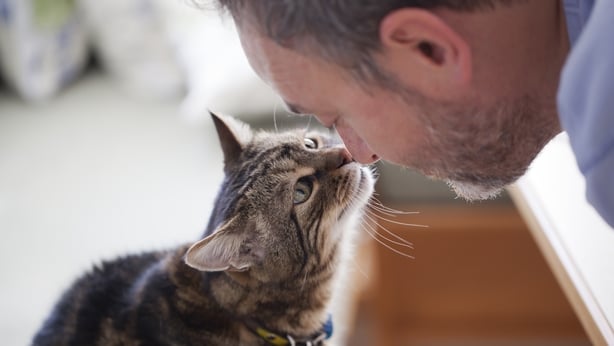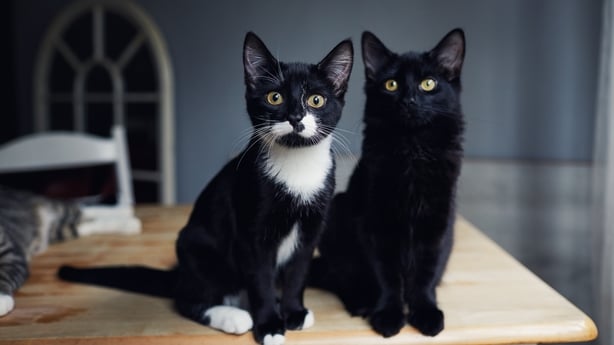If you find a feral cat in your garden, it can be hard to know what the right thing to do – even for committed and seasoned cat owners.
From wild cats living under your shed to litters of kittens in need of care, there are many ways we can help feral cats, but too often people are put off by fears that they are aggressive.
More upsetting, however, are reports that people will pay "rogue traders" to come remove the cats – including some collared domestic cats – often abandoning them far away from home.

As we head into the colder months, many of us will be mindful of what we can do to care for stray animals even if we don't want to adopt them ourselves. Gillian Bird, Head of Education & Media at the DSPCA, joined Louise McSharry on 2fm to share her expert advice on how to deal with feral cats, from stopping them from moving in to neutering.
"What people call the wild cats, feral cats, cats that live under the shed at the end of my garden, they're basically just cats that we, as humans, have had as pets that we've either turfed out onto the street or that have gone and had kittens", she tells Louise.
"When kittens are born under a shed or somewhere where there aren't many humans around, they don't get used to being handled and they're then classified as feral cats."
In the way that wild cats can be tamed, cats born in a home and handled by humans can also turn wild when contact with humans is lost. "The word feral, it's not aggressive, it's just a cat that isn't used to human contact", Bird says.
Fear of aggressive is possibly what leads people to call on "rogue traders" who say they will remove the animals.
"Unfortunately, we have suspicions ... that there are people going around who are charging people to come take away the cats that are in their gardens", Bird says. "I don't know what they're telling people they're doing with them, but what we've had reports about is basically van doors are being opened, up in the hills and cats being abandoned.
"This isn't just the wild cats, this is people's cats. We've had reports of cats wearing collars being seen dumped out the back of vans."
If you're someone who confidently says "I don't like cats", Bird has some thoughts for you. "Every single cat is a different personality, you'll never come across two cats the same. So you can't generalise and say, 'I hate cats'. You just haven't met a cat who liked you or who you've liked.
"That's the problem, I think [people] treat cats like they should be dogs, they should come when they're called, they should want to be petted and they don't. You have to play close attention to whether the cat wants to be petted or not."
Bird says that feral cats are "a human-created problem". "There are so many cats out there because people haven't taken responsibility and neutered them. If you are going to start feeding a cat that comes into your garden ... you need to be taking responsibility because that cat is going to start relying on you for food."
The DSPCA can neuter cats for €25, and tom cats for €10, and if you find cats in your garden you can call the charity for advice.

Her "usual advice", however, is "don't start feeding a cat unless you're going to take responsibility for feeding and caring for that cat."
So what do you do if you find feral cats in your garden, and you don't want them there?
"If you have a cat with kittens in your garden, the cat is there because they consider your garden to be a safe environment to be in", Bird says. "An ideal situation would be you start feeding the mum, we get her caught, we try and take the kittens in, we tame them.
"She's not going to do you any harm. She's there because somebody is feeding her in the area, if she's not getting much food then she's surviving on rats and mice, which you might not even be aware you have in your garden."
If you find what looks like a domestic cat sniffing around your garden, Bird says not to feed it. "Cats can have multiple homes that people don't realise.
"The ideal thing to do is, don't feed it, if you have any concerns about it attach a note to its collar that says 'if this is your cat, please let me know. I want to help, do you want me to feed it?'"
To listen back to Louise's full chat with Gillian, click here.

